French Postman's Palace
Categories: Design and Architecture
By Pictolic https://pictolic.com/article/french-postmans-palace.htmlThis story is about how to follow your dream, despite the opinions of others who do not always understand you. In 1879, a French postman named Ferdinand Cheval gave free rein to his imagination and began building the palace of his dreams, which he called Le Palais Idéal, or "The Perfect Palace". Your attention is drawn to the palace of the French postman, which he built for 33 years!
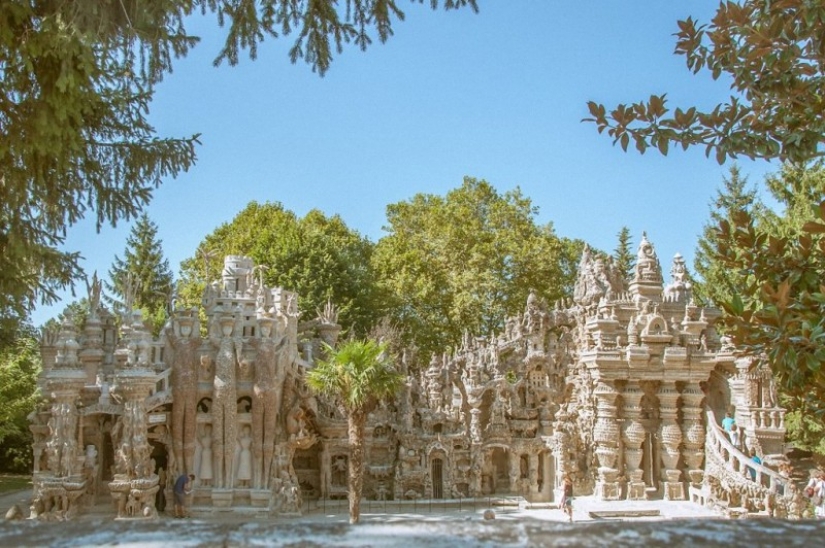
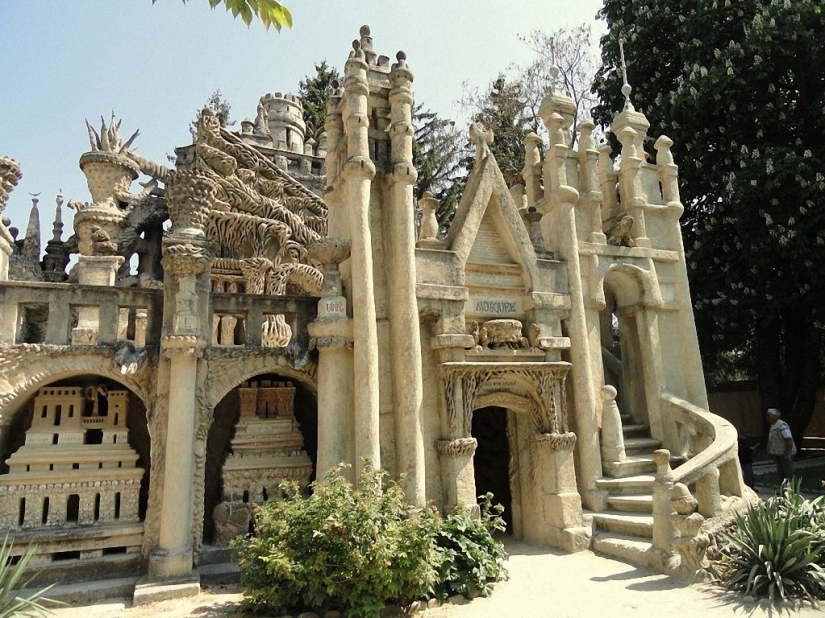
And it all started with a stone that was found on the road by the postman Ferdinand Cheval, delivering letters to the residents of Hauterives — a small town in the south-east of France, where he lived. (Photo: Danderot)
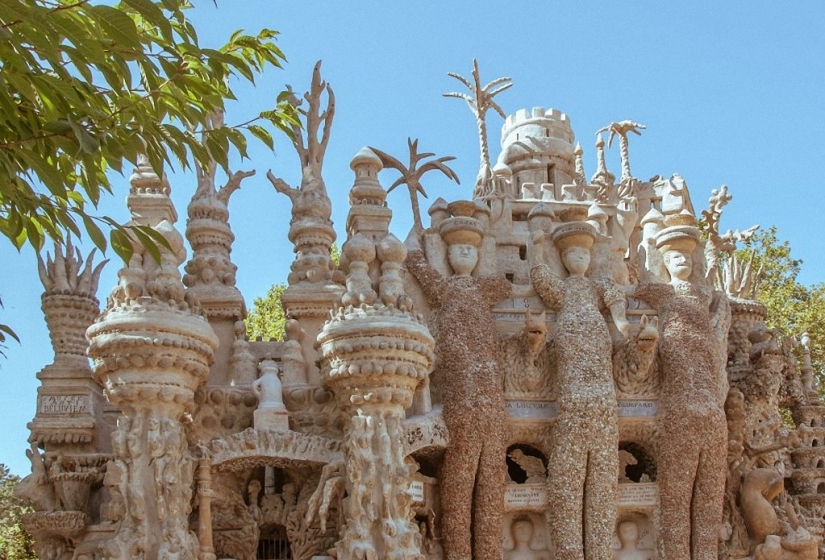
Ferdinand Cheval was born in 1836. At the age of 13, he dropped out of school and got a job in a bakery. For many years he worked as a baker, but in 1867 he decided to "change his profession" and became a postman. (Photo: Emmett Anderson / flickr.com)
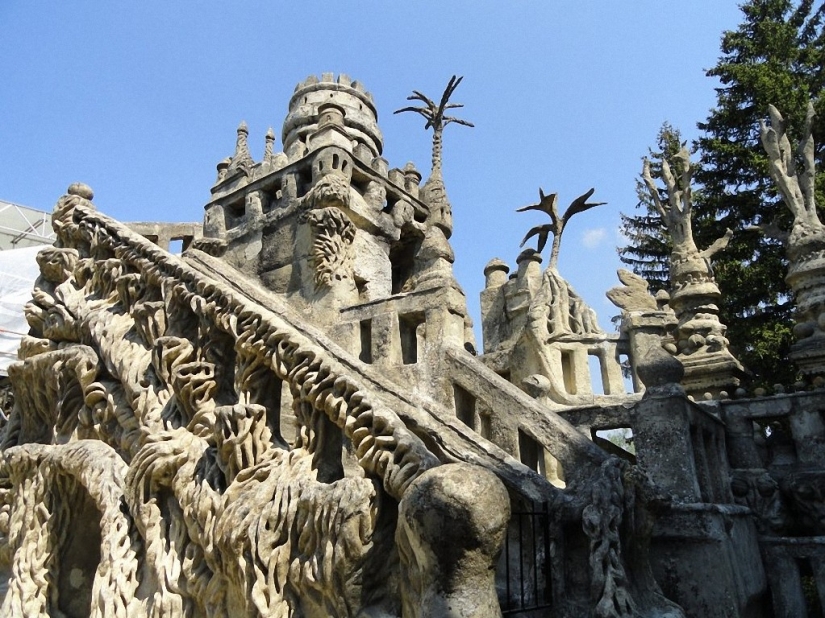
One day, while walking along a country road, the postman tripped over a rock. He picked it up and was struck by its beauty and amazing shape. "And then I began to dream of building a palace, a magnificent castle. I didn't tell anyone about my dream because I was afraid people would start laughing at me. I myself was ashamed of this idea, " Cheval wrote in his memoirs. (Photo: Danderot)
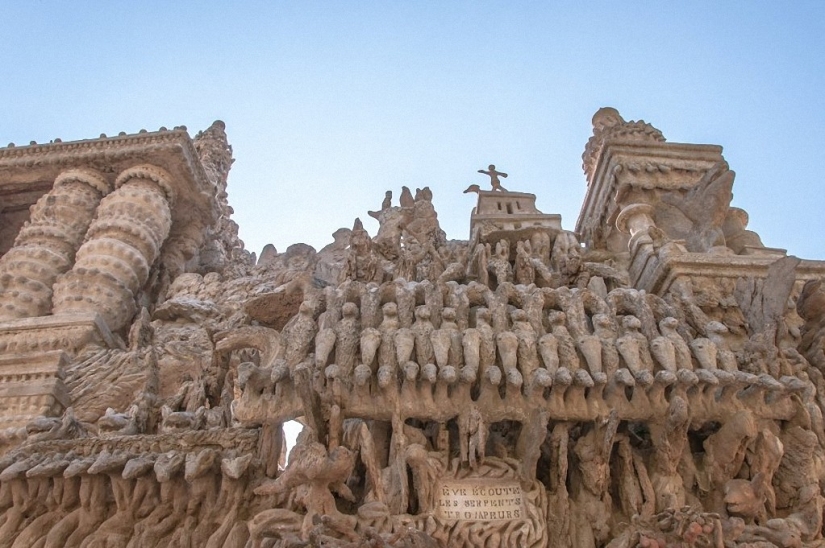
And he forgot about his dream for many years. However, the will of chance brought him back to the idea of building a beautiful palace. "Fifteen years later, when I almost forgot about my dream, when I didn't think about it at all, my leg reminded me of it. I tripped over a rock, almost fell. I picked it up. The stone had such an unusual appearance that I put it in my pocket. I wanted to take it with me to admire it in silence, " Cheval wrote. (Photo: Emmett Anderson / flickr.com)

The next day, the postman returned to the same place and found many"even more beautiful stones". And these were sandstones — grainy sedimentary rock - they made an indelible impression on the Cheval with their variety of forms, which reminded him of small sculptures. (Photo: Emmett Anderson / flickr.com)
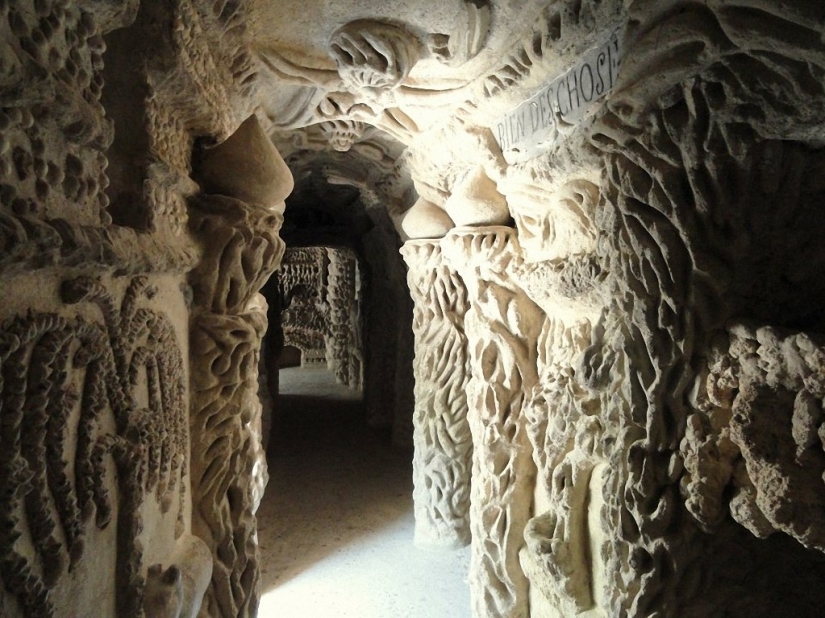
For the next 33 years, the postman Ferdinand Cheval persisted in collecting stones on the 30-kilometer route that passed, delivering mail. Sometimes he got so carried away that he walked another 8 kilometers to find as many beautiful stones as possible. (Photo: Danderot)
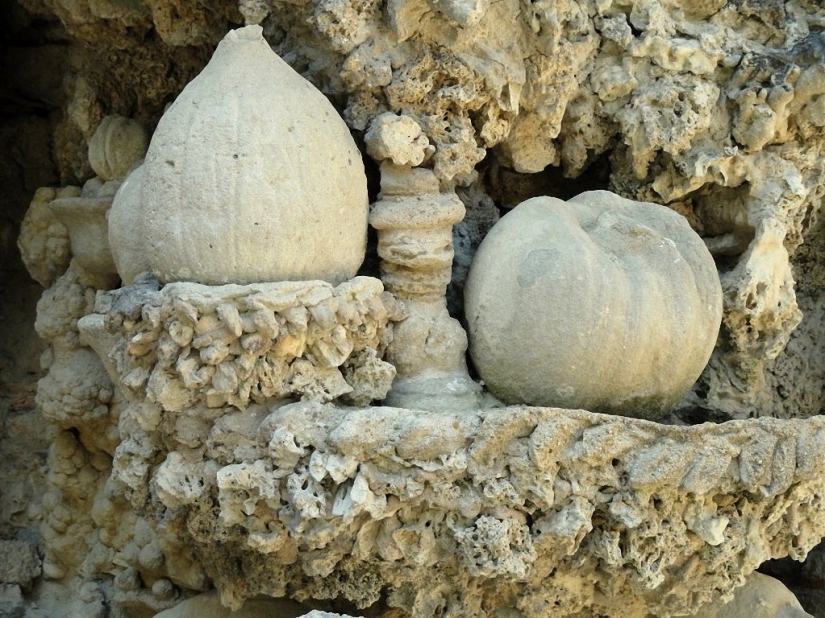
At first, the Cheval collected stones in a letter bag and in his pockets, then he went around with a basket, and when it seemed small to him, he bought a wheelbarrow. The collected stones were stored in his garden, where in 1879 he began to create the palace of his dreams, which he called "The Perfect Palace". (Photo: Danderot)
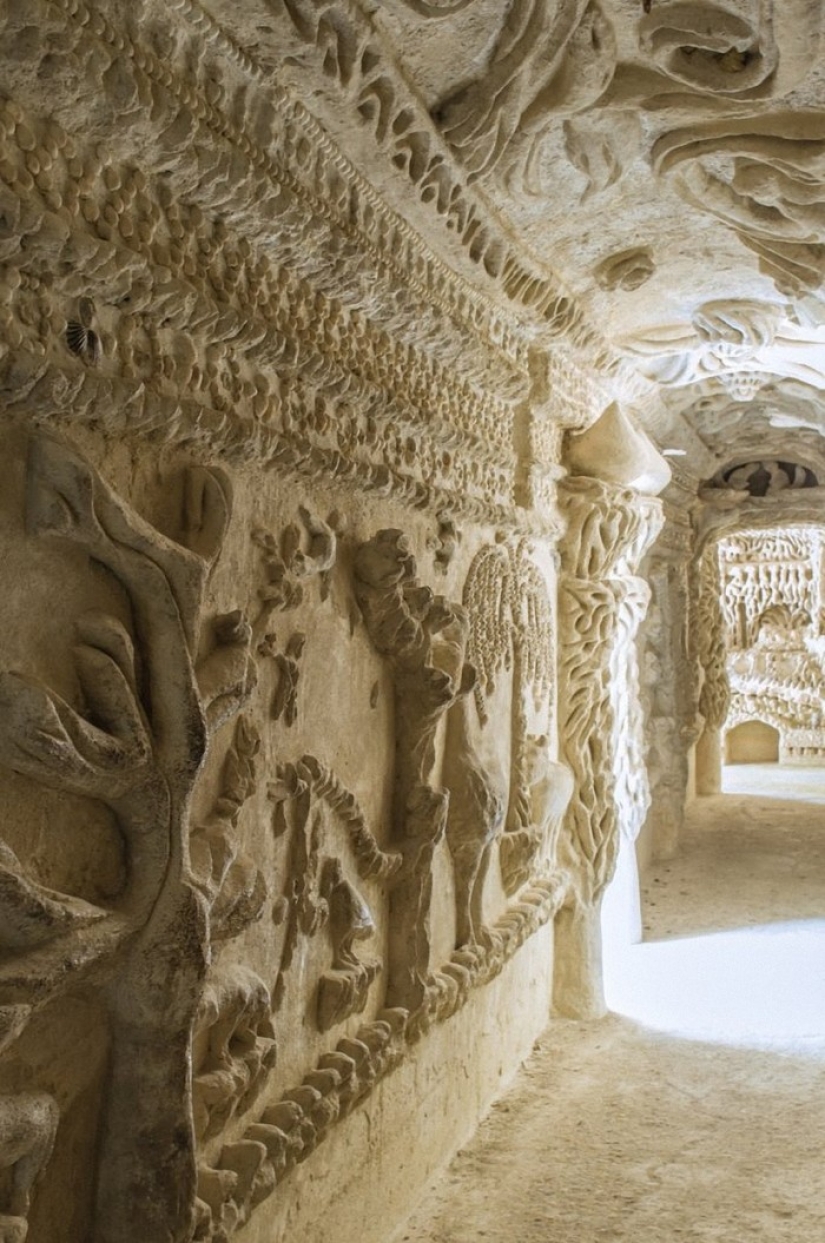
It took two decades to build the outer walls of the palace. Then the postman took care of its interior and decoration. (Photo: Emmett Anderson / flickr.com)
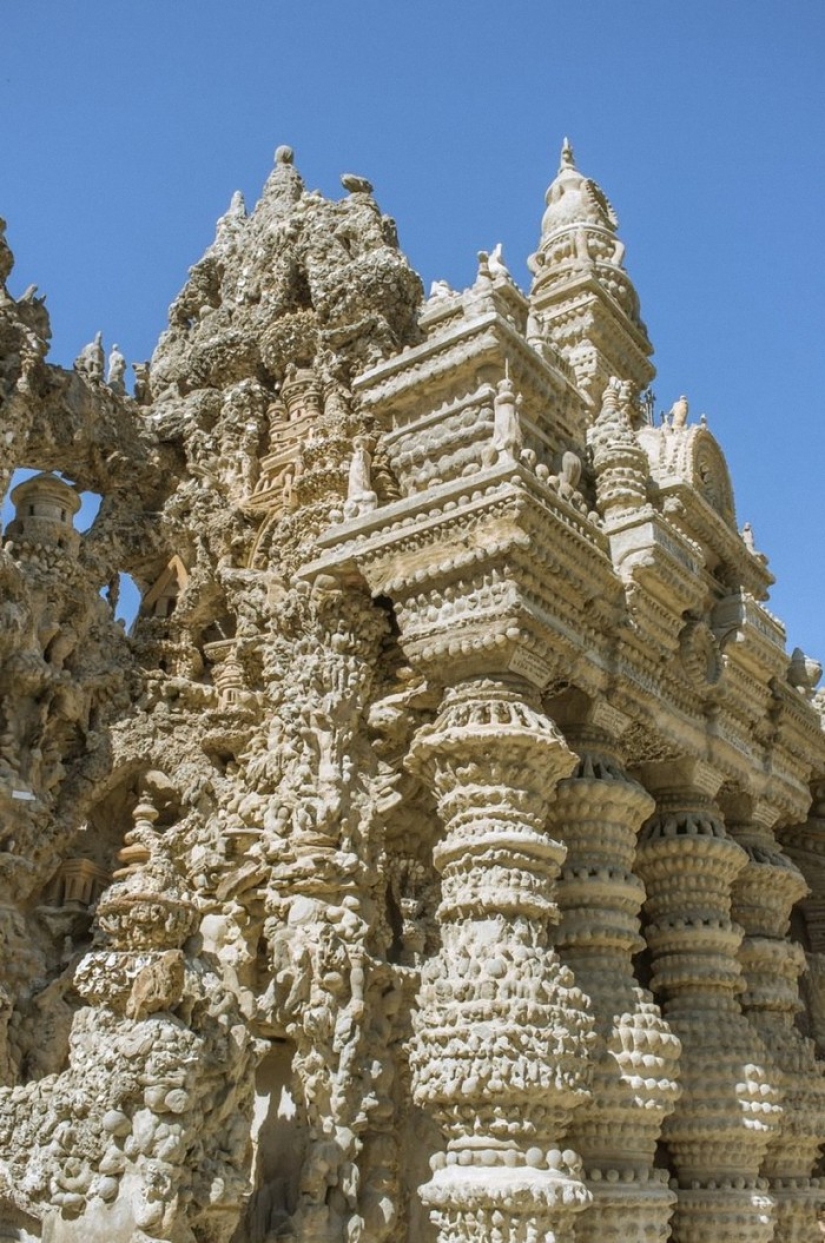
Cheval worked mostly at night, by torchlight. He built his palace for 33 years-alone, stone by stone. To connect the stones, I used a cement-lime mortar. The postman was inspired by colorful postcards from exotic countries that he saw while delivering mail. This is reflected in the variety of styles he used in the construction of the palace. (Photo: Emmett Anderson / flickr.com)
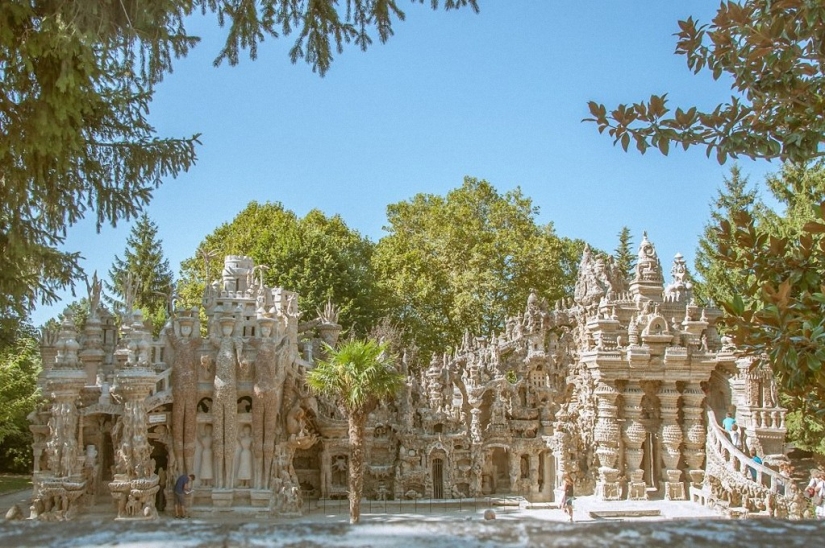
Looking at the palace of the postman Cheval, you can see typical elements for Hindu temples, Arab mosques, medieval castles and Christian cathedrals. Thanks to the many decorations and sculptures depicting animals and fairy-tale characters, the palace seems to be alive. (Photo: Emmett Anderson / flickr.com)
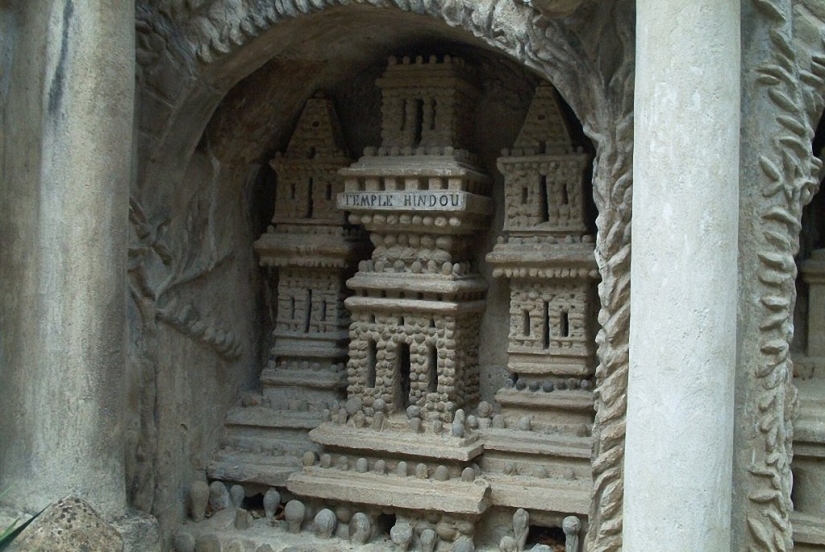
The walls of the palace are dotted with many birds, bears, fairies, alligators, octopuses and giants. The length of the "Ideal Palace" is 26 meters, and the height is 10 meters. (Photo: Pabix/wikimedia)
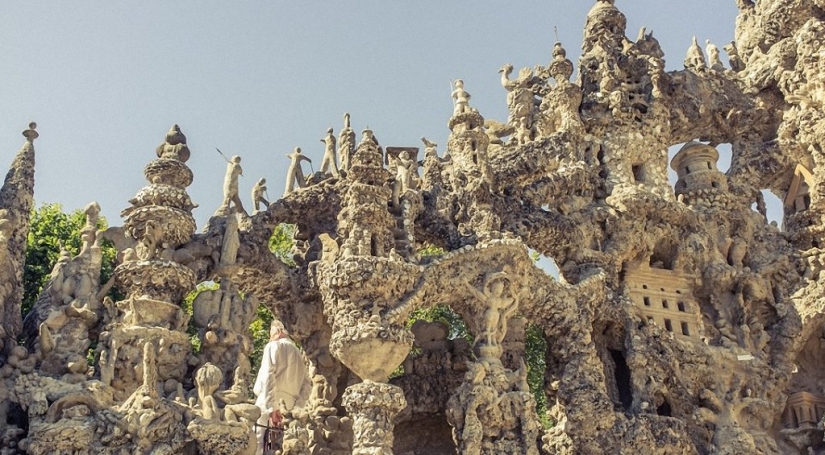
When Ferdinand Cheval finished building the palace of his dreams, in 1912, he was 76 years old. As it turned out, he never intended to live in it. The postman-architect and builder made his business available to anyone who wanted to see it. And, as he wrote, all this time he did not pay attention to the caustic remarks of local residents, who for many years called him crazy. (Photo: Emmett Anderson / flickr.com)
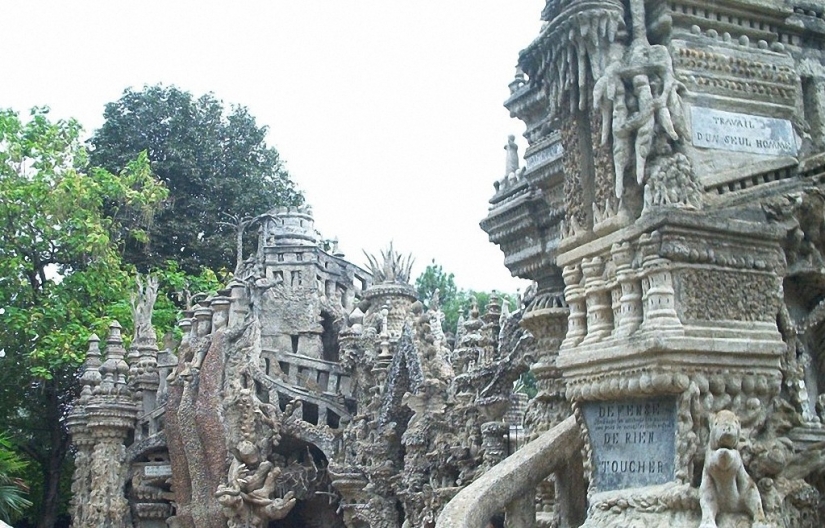
"I knew that people like to mock and even harass those they don't understand," Cheval wrote. — I wanted to show you what you can achieve with willpower." His work was enjoyed by Picasso himself, who created several sketches inspired by the view of the Cheval Palace. (Photo: Pabix/wikimedia)
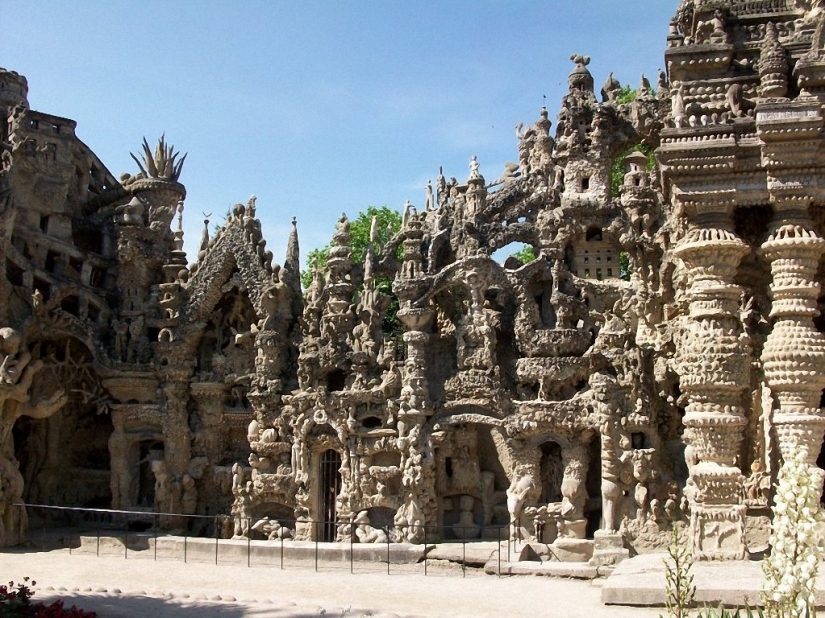
The "Ideal Palace" is considered one of the most unique examples of primitivism in architecture. Every year it is visited by about 100 thousand tourists. In 1986, the French Post office issued a stamp with his image in memory of Ferdinand Cheval. (Photo: Xavier Devroey / flickr.com)
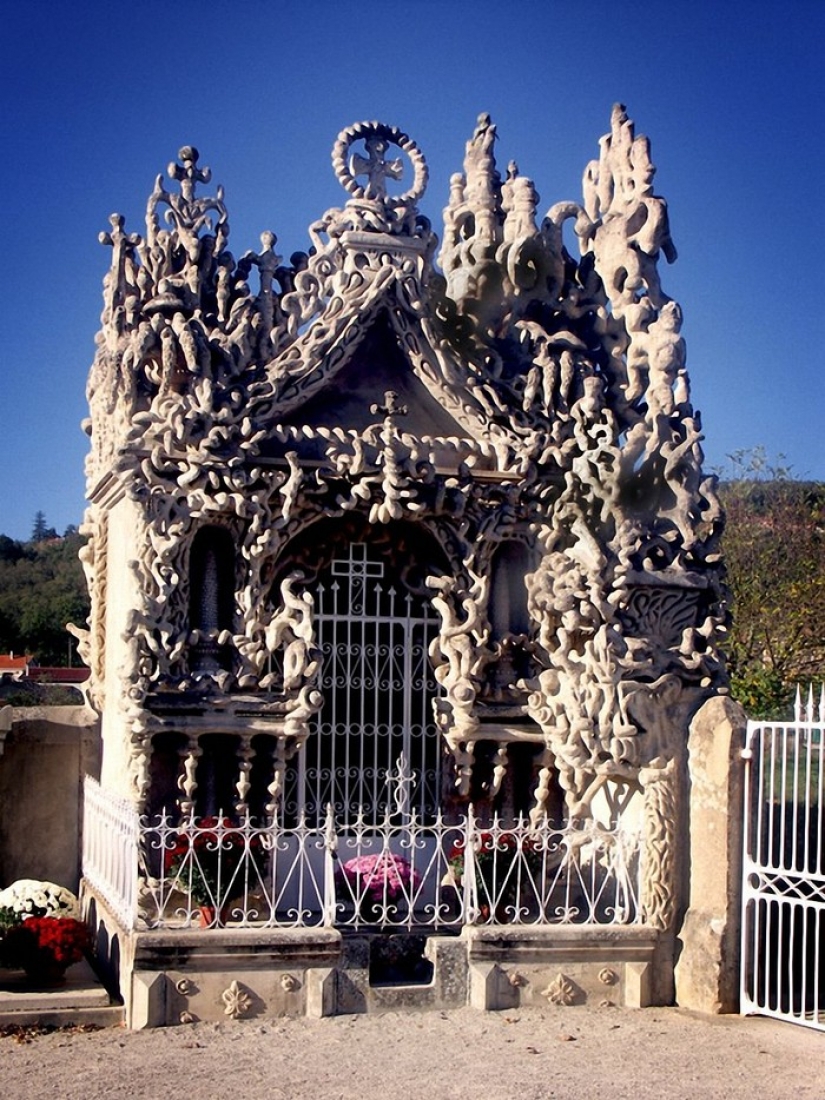
Ferdinand Cheval wanted to be buried in his palace, but this was not possible, because it was contrary to French law. So he started building a tomb for himself in the local cemetery (pictured). The famous postman died in 1924, a year after the completion of his mausoleum, the construction of which lasted eight years. His "Perfect Palace" delighted many artists of the time, who came to the tiny town of Hauterives to get acquainted with the creator of such an unusual palace and learn its history. (Photo: Bleugrenouille/wikimedia)
Keywords: Palace | Dream | Postman | France
Post News ArticleRecent articles

It's high time to admit that this whole hipster idea has gone too far. The concept has become so popular that even restaurants have ...

There is a perception that people only use 10% of their brain potential. But the heroes of our review, apparently, found a way to ...
Related articles

Man cave, or "man cave" — is embodied in the life of children's dreams of their own cozy nook where you can relax from bustle and ...

Cities where people live, create planners. And the cities where we want to live, come up with the filmmakers. They, of course, ...

Co-existence is far from an indicator of falling in love with each other, it is much more important how you share a bed with your ...

New Year's is a time to surprise and delight loved ones not only with gifts but also with a unique presentation of the holiday ...